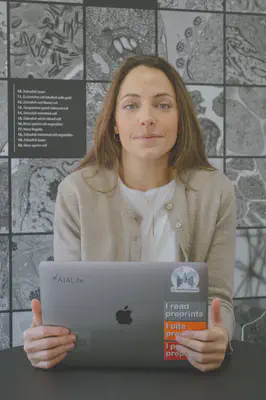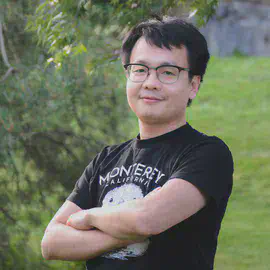Start date: Week 38 (17th September 2024)
Speaker 1: Estibaliz Gómez de Mariscal (Postdoc at Instituto Gulbenkian de Ciência, Portugal; Tuesday 17th September 9:00-10:00 CEST)

Estibaliz Gómez de Mariscal completed her PhD in Mathematical Engineering in 2021 and is currently an EMBO Postdoctoral Fellow in the Optical Cell Biology Group at Instituto Gulbenkian de Ciência in Portugal. Her research focuses on contributing to biological discoveries by exploiting image processing techniques, artificial intelligence, and live-cell microscopy imaging. She actively contributes to the dissemination and accessibility of these technologies within the deepImageJ, ZeroCostDL4Mic, the Cell Tracking Challenge, DL4MicEverywhere, and the BioImage Model Zoo projects. Learn more about her here.
Title: Deep learning enabled image-driven scientific discovery
Recent advancements in bioimage analysis, particularly leveraging deep learning techniques, are revolutionizing image-driven scientific discovery by enhancing the speed, accuracy and capacity to extract valuable insights and relationships from biological images. Their ability to uncover intricate patterns and seamlessly adapting to the increasing volume of experimental data holds promise for heuristic approaches in research. In this lecture, I will introduce basic concepts in deep learning, microscopy imaging and bioimage analysis as well as discuss with you the actual context in image driven scientific discovery and provide you a collection of resources to explore these techniques yourself. Additionally, I will briefly introduce the different collaborative tools developed together with colleagues to foster the accessibility and reproducibility of deep learning approaches.
Speaker 2: Wei Ouyang (DDLS Fellow; Tuesday 17th September 8:00-9:00 CEST)

Wei Ouyang is an assistant professor in the Applied Physics Department at KTH Royal Institute of Technology in Stockholm, Sweden, and a Data-Driven Life Science fellow. He leads a team focused on building AI systems for next-generation life science. Wei earned his PhD at Institut Pasteur in Paris, where he developed ANNA-PALM, a deep learning method that significantly enhances super-resolution microscopy speed. He later worked as a postdoc with Emma Lundberg’s group, focusing on image analysis and whole-cell modeling. Wei is the founder of ImJoy, an open-source platform for deep learning tools, and co-founder of the BioImage Model Zoo and the AI4Life consortium. Learn more about his work here.
Title: Advances in Generative AI for Conditional Microscopy Cell Images
In this lecture, you will be introduced to the basic concepts of recent advances in generative AI, large language models, and diffusion models, with a focus on creating conditional microscopy cell images for whole-cell modeling. We will delve into the challenges faced in generative AI and explore potential paths forward in data-driven life sciences.
By the end of this lecture, attendees will have a comprehensive understanding of how generative AI can be applied to generate and manipulate microscopy cell images for whole-cell modeling, along with the current challenges and future directions in this exciting field.
Computer Lab: The lab will provide hands-on experience with tools and techniques in bioimage analysis, including the use of deep learning models for processing and analyzing microscopy images.